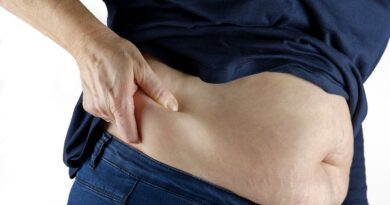Top 5 Weight Loss Tips
The body requires energy in order to carry on any kind of energy – whether voluntary, like reading, eating, talking and running, or involuntary like inflating the lungs, secreting enzymes, and beating the heart. The body derives energy in the form of calories from CHO, protein, fat, and also alcohol. Depending on individual BMI (Basal Metabolic Index) sometimes these calories create excess fat in the body. Excessive weight gaining not only because of eating but also genetic plays a role in it. However, to maintain certain methods or follow some weight loss tips one can regulate the weight of the body.
- Total Fasting
Fasting is a good method to shed some extra pounds from the body. Because total fasting alters normal physiology and biochemistry of the GI tract, it should be used only under complete medical supervision. Although total fasting does produce weight loss, loss of lean body tissue is extensive and weight loss is poorly maintained. Other potential complications include dehydration, hyperuricemia, nausea, dizziness, hepatic and renal impairment, mineral depletion, acidosis, severe postural hypotension and muscle wasting.
2. Surgical Procedure
Surgical intervention may be considered for morbidly obese clients who fail to lose weight by nonsurgical means. People who are increased risk of morbidity and mortality because of their obesity and when the risk of remaining obese is greater than the risk of surgery.
Surgery cannot guarantee that weight loss will be maintained, especially if eating attitudes and habits do not change. Follow-up care and behavior modification are vital to the long-term success of any surgical procedure.
3. Diet Pills
Under strict medical supervision, one can take over-the-counter drugs to aid weight reduction. When used as the only means of weight control, drugs are ineffective and inappropriate. Some drugs may be useful on a short-term basis when used in combination with a calorie-restricted diet, behavior modification, and exercise.
Many people use diuretics to cause a temporary decrease in body weight due to the loss of body water, not from a reduction in body fat.
4. Prevention is better than treatment
The prevention of obesity is far more effective than its treatment.
• Encourage overweight parents to avoid overfeeding infants
• Avoid using food inappropriately to convey love, support, and acceptance
• Encourage children to participate in regular physical activity
Successful weight control is possible when the attitude of “always being on a diet” changes to an acceptance of eating lighter and less as a way of life.
5. Diet Therapy
A balanced weight reduction diet, like a normal diet, should provide approximately 50% to 55% of the total calories from CHO, 12% to 15% from protein, and 30% or less from fat.
Standard diets rarely fit into an individual’s life-cycle and eating habits. Individualize the diet as much as possible to correspond with the client’s likes, dislikes and eating pattern.
Food is utilized more efficiently when consumed in small quantities 3 to 4 times a day rather than one large meal. Don’t skip meal and munch on snacks. Moreover, when a food is forbidden, it suddenly takes on mystical qualities and becomes all the more appealing. Keep forbidden foods to a minimum and emphasize portion control.
Stress the importance of consuming a nutritionally adequate diet even though calorie intake is reduced.
Quick Tips for Weight Loss
• Eat fresh fruits and vegetables prepared without added fat.
• Eat lean meats, skinless poultry and fish. High protein increases BMI and also creates a filling in the stomach
• Estimate portion sizes of all foods.
• Food does not have to be prepared separately from the rest of the family’s as long as extra sugar and fat are not added.
• Herbs and spices, which impart flavor without any calories. The same is true of cooking with wine; as the food cooks, the calories evaporate, leaving only the flavor of wine.
• ‘Lite” foods do not necessarily have fewer calories than regular foods. For instance, one type of corn chip marketed as “lite” has only 1 calorie less than the regular variety.




